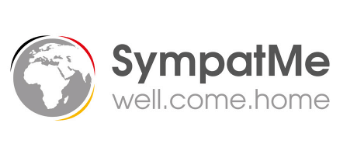German Private health insurance – what you should know
It is compulsory for everyone living in Germany to have health insurance.
Everyone in Germany must be covered in case of illness. Most people are compulsory members of statutory health insurance. Not everybody can apply for german private health insurance, as certain conditions must be met.
Private health insurance in Germany
Prerequisite
Anyone in employment may only take out german private health insurance if their income exceeds 64,350 euros gross per year (value for 2022). Civil servants and the self-employed may take out private health insurance regardless of income.
Free choice of an insurance company
Those who choose private health insurance have a wide choice of offers. Customers are responsible for choosing which benefits are included in the contract. That’s why it’s essential to compare insurance companies before signing up.
ottonova – German Health Insurance for Expats

Save on health insurance. Get a whole lot more.
You can save much money if you sign up with ottonova and still get much better coverage than public health insurance. Non-EU Expats can save even more by joining our special expat coverage.
- Special expat rates – And excellent coverage
- Get your visa – Fulfills all legal requirements
- 24/7 English support – To make your life easier
- No paperwork – Sign up online & use the app
How it works:
To help you with our online sign-up process, we’ll set up an appointment to chat on the phone.
We can answer any questions you might have and guide you through the steps, one at a time.
Just click on “Get free Consultation” to get started!
It’s as simple as that.
About Ottonova
Excellent insurance. Suitable for you.
Your health is the most important thing you have, and that’s why Ottonova built their insurance policies to give you the best possible coverage in every situation.

- Private health insurance for employees & self-employed
Protect your health comprehensively at the highest level and adapt the coverage to your needs via the additional modules of Ottonova.
- We take the work off your hands.
With ottonova, you have a health insurance plan that works for you. Their concierge will arrange doctor’s appointments for you, find the right specialist, and answer all your health and health insurance questions.
- Affordable today, affordable tomorrow.
Because reliability is just as important to Ottonova as you, they have created all the conditions to ensure that your premiums remain affordable into old age.
- Personal advice that helps you
Ottonova does everything they can to help you make an informed, conscious decision that will benefit you for life.
- Built-in retirement savings
50% of your premiums are set aside for old age. More than any other health insurance.
- Future-proof calculation
All rates are designed for maximum premium stability because they realistically reflect the current low-interest-rate environment—Unique in the market.
- Lean processes
State-of-the-art technology and improved processes mean lower administrative costs, enabling continuous development of the ottonova world of tomorrow.
- Smart premium relief
Lower your premiums in old age by simply setting aside a little more today with our additional module for premium relief, which you can select in the online application section.
Check out the top-up dental plan of ottonova
Supplementary dental insurance makes sense for people with statutory health insurance in Germany. Because statutory health insurance does not cover all the costs of dental treatment. These can be very costly, especially when it comes to dental prostheses. They can be an immense financial burden for the patient! Patients often underestimate the costs.
That’s why ottonova offers supplementary dental insurance. This can simply be booked in addition. Take a look at it and just click on the button!
Care Concept – Get private health insurance in Germany

Who is eligible?
The Care Expatriate international health insurance is tailored to the specific needs of private and business travelers, as well as people on global assignment or emigrating worldwide. This health insurance can be taken out for long-term travel (stays abroad of at least 3 months up to a maximum of 5 years) up to a maximum entry age of 74.
What are the benefits?
Benefits include outpatient, inpatient and dental treatment as well as examinations, treatment and care by all licensed physicians worldwide at the local standard rate. In Germany, the maximum insurance period is 5 years. Outside Germany, you can extend your contract as often as you wish up to the maximum age.
When taking out an initial insurance policy for 5 years with a geographical area of validity outside Germany, there is a one-time acceptance guarantee for a follow-up insurance policy up to a maximum of 5 further years.(Care Expatriate Comfort / Care Expatriate Premium). Insurance coverage for newborns is guaranteed regardless of pre-existing conditions.
We recommend that business travelers and persons traveling abroad on business take out daily sickness allowance policy (“Care Cash”). The daily sickness benefits insurance Care Cash covers loss of income due to prolonged illness.
How it works?
- Choose the right tariff (Basic, Comfort or Premium)
- Click on Online Application
- After checking your details you will receive everything else by email.
It’s as simple as that.
How much does it cost?
In private health insurance, the costs are based on the desired benefits and your age. Simply adjust your rate to meet your needs. Personalize your ottonova rate with our add-on for a daily sickness allowance.
Why is the Expat tariff cheaper?
Normally, private insurance plans help you to save for your future – you’ll pay more now, so that your premiums don’t rise later. But if you’re only planning on staying in Germany for a short time – less than 60 months – then there’s no need to set this extra money aside.
Returning to german public health insurance is difficult
Privately insured persons cannot return to public health insurance without further ado. After the age of 55, it is virtually impossible to return.
So please consider beforehand what is right for you.
What’s good about German private health insurance?
Employed and self-employed people should choose wisely.
Employers pay half of the contribution for employees, regardless of whether they have private or statutory insurance. At retirement age, they receive a subsidy from the pension insurance provider. However, this no longer covers half of the contribution payable, but only a tiny proportion.
Self-employed persons have to pay for everything themselves, both in active working life and retirement. Therefore, it may be worthwhile for them to remain insured in the statutory health insurance fund despite the initially higher contributions. Since 2019, German public health insurance has been more favorable for low-earning self-employed persons, and lower minimum contributions apply.
Who can get private health insurance?
Who can take out private insurance
Only certain persons can leave the public health insurance system. And not everyone who can leave is recommended to switch to private insurance. Employees with a monthly income above the compulsory insurance limit of 5,362.50 euros gross (64,350 euros gross per year. Values for 2022) can choose german private health insurance. German Social security income limits are regulated by law, and the federal government sets them annually. Full-time self-employed persons and civil servants can take out private health insurance regardless of their income.
Statutory and private health insurance – many differences
Many things are regulated differently in private health insurance (PKV) than in German public health insurance. It starts with the fact that insured persons are no longer members of a general social welfare institution, such as German social security, but private company customers. Anyone taking the step into German private health insurance should know the differences between the two systems.
Public or private – it’s the benefits that count
Should I choose a private health insurer? This decision has long-term implications, and the advantages and disadvantages have to be weighed up carefully. It is worth taking a look at the benefits. The advantages of switching to private insurance include higher benefits, such as treatment by a chief physician in a private hospital or accommodation in a single or double room. Many packages also provide higher reimbursements in the dental care concept for dental prostheses than those offered by statutory health insurers. But not all benefits are better. For example, many older private insurance contracts don’t cover psychotherapy or home health care appropriately. When selecting a suitable offer, customers should ensure that all-important benefits are included in the contract. It is usually not possible to increase insurance coverage in the event of illness.
Switching insurers – the problem of pre-existing conditions
Pre-existing conditions also speak against switching insurers, as these can lead to high surcharges or even exclusion from insurance coverage. In addition, privately insured persons have to put up much paperwork, unlike those with statutory insurance: They must first pay all medical bills, therapies, and medications themselves and then submit the bills to their insurance company for reimbursement. In addition, new customers in their mid-forties and older are generally advised not to switch insurers. Those who only start at this age must expect high premium increases at retirement age because the saved aging reserves that the insurer makes may not be sufficient to slow down the later increase in premiums.
Qualifying insurance

“Anwartschaftsversicherung” can preserve the rights of private health insurance during the period in which claims for benefits against other insurance carriers exist. When benefits are resumed, either illness that has occurred in the meantime is included in the insurance coverage (short expectancy), or additional aging provisions have been built up (large expectancy). For example, police officers and soldiers entitled to a free medical care concept secure the benefits of the private health insurer taken out at an early stage.
The qualifying insurance can also be of interest to privately insured persons who have become unemployed because unemployed persons are automatically required to take out insurance in the public health insurance funds if they have not already reached the age of 55. If unemployment lasts less than a year, you can revive the previous private insurance contract under the old conditions even without qualifying insurance. In addition, it is possible to be exempted from compulsory insurance in the statutory health insurance at the beginning of unemployment, provided that the private health insurer coverage has existed for at least five years.
In private health insurance, the costs are based on the desired benefits and your age. Simply adjust your rate to meet your needs. Personalize your ottonova rate with our add-on for a daily sickness allowance.
The private health insurer (PKV) costs are based on the desired benefits and your age. For good to excellent protection, a 35-year-old pays between 325 euros and 425 euros per month, as a PKV comparison by the business magazine Focus-Money shows.
Due to a hundred euros and more significant price differences, you should compare different offers before choosing your private health insurance. This way, you will find the insurance with the best price-performance ratio.
PKV premium adjustments 2022: Increase by up to 45 percent!
Many privately insured people have to prepare for a premium adjustment at the turn of the year. They will not be as large as 2021, when additional costs rose by eight percent. However, premium adjustments will not be absent in 2022 either. The reasons for this include:
- Persistently low interest rates.
- Higher expenses due to medical advances.
- Additional costs due to the corona crisis.
Private health insurance premiums will rise by 4.1 percent in 2022.
For new customers, i.e., people switching to private health insurance or their insurer in 2022, the premium adjustments will be considerably higher in some cases. In individual cases, increases of up to 45 percent are possible.
In general, all privately insured persons will pay a corona surcharge in 2022. It is 7.30 euros per month for civil servants, for salaried employees 1.70 euros per month, and for all others 3.40 euros. The surcharge will be calculated until the end of the year.
Tip: In the event of premium increases or changes in benefits, you have a special right of termination and may give extraordinary notice two months after notification!
How are the costs of a PKV plan calculated?

Both German public health insurers and private health insurers can adjust their premiums, for example, due to higher health care costs. For instance, average premium income in both healthcare systems has risen by around three percent per year over the last ten years. Private insurers also build up reserves to cushion premium adjustments to prevent premiums from swelling uncontrollably in old age.
The higher the deductible you agree upon, the more affordable private health insurance becomes. You determine a certain amount of your annual medical costs, which you pay for yourself. Be sure to choose a deductible that you can pay in one go at any time in the event of extensive treatment.
Some insurers also offer to choose private health insurance with premium reimbursement. If you do not use any services within a year, you will receive up to three months’ premiums.
If students can no longer cover themselves through family insurance or student health insurance, they only have the option of voluntary insurance in the GVK. Here, students pay the minimum monthly contribution of 160.11 euros plus additional contribution and nursing care insurance. In contrast, the private health insurer costs for special student rates can start at around 90 euros.
In private health insurance, children need their coverage. If one parent is a civil servant, parents can cover their offspring for around 40 euros a month. If one parent is not entitled to benefits, the costs start at about 100 euros additional cost.
As a privately insured pensioner, you are entitled to a subsidy of 50 percent of private health insurance costs from your pension insurance provider. You must apply for this, ideally directly with your pension. The supplement is capped. You will receive a maximum of 7.95 percent of your retirement as a contribution subsidy.
Private health insurance and annual income tax return
Regardless of whether you are required to file an annual income tax return or not, the effort should be worthwhile for you. After all, contributions to private health and nursing care insurance are classified as so-called pension expenses, just like contributions to a personal pension plan. You can claim your insurance contributions and those for your privately insured family members as extraordinary expenses in your tax return.
To what extent can I claim contributions for private health and nursing care insurance against tax?
Contributions to compulsory long-term care concept insurance and supplementary nursing care insurance are fully tax-deductible. In the case of health insurance, however, the tax authorities only consider the contributions for certain benefits. So-called basic health insurance (not to be confused with the basic plan coverage), which roughly corresponds to the German public health insurance benefits, serves as an orientation value. Typical PKV insurance benefits, e.g., a two-bedroom in a private hospital or treatment by a non-medical practitioner, are considered additional benefits and are excluded from the tax reduction. The same applies to daily sickness benefits insurance.
Note: The contributions for such additional benefits beyond the PKV level (treatment by a chief physician) can also be deducted from taxes – as other pension expenses. However, this is only possible if the maximum limits have not already been exhausted by your essential health and nursing care insurance contributions. The maximum limit for other pension expenses is 1,900 euros for employees civil servants and 2,800 euros for self-employed persons. For married couples, the corresponding limitation applies separately to each partner.

The German Income Tax Act (EStG) explicitly mentions health insurance contributions as extraordinary deductible expenses. Therefore, your costs must at least be related to obtaining insurance coverage and thus ultimately serve to provide for your future. With this reasoning, the Federal Fiscal Court has ruled in the past as follows:
Health care expenses within deductibles and other additional costs co-payments cannot be deducted from taxes. If you bear treatment costs yourself outside of your plan agreements to not jeopardize your premium refund, you can not claim these expenses as extraordinary expenses. Therefore, the health care costs are irrelevant to your tax return.
If you receive a premium refund, you must declare it in your tax return, reducing the deductible insurance premiums in the year of payment.
How do I calculate the amount of deductible private health insurance premiums?
The good thing is: You do not have to calculate the amount of deductible private health insurance contributions yourself. Every year, privately insured persons receive a certificate of the primary contribution from their insurer, which proves the amount of the deductible expenses. Therefore, all you have to do is transfer the sums mentioned earlier to the “Vorsorgeaufwand” (“Pension Expenses”) annex when filing your tax return. If you are independently employed, it is recommended that you also forward the certificate to your employer. He will then include the contributions in the income tax to be paid, reducing your advance income tax payments.
Your insurer calculates your deductible PKV contributions as follows: From your total health insurance contribution, it deducts the separately stated amounts for additional benefits such as a daily sickness allowance. It is fully deductible if you have only agreed on the primary cover. If your tariff includes other benefits (e.g., a two-bedroom in the hospital), your insurer applies the Health Insurance Contribution Share Determination Ordinance (KVBEVO). Each benefit has a point value (see table). The sum of the non-deductible benefits is divided by all benefits and multiplied by the tariff contribution—the calculated product results in the contribution that is not tax-deductible.
Get the cover you need
Private health insurance is designed to cover the cost of private health care treatment for a range of medical conditions. Policies can cover a variety of diagnostics to identify diseases, illnesses, or injuries and offer a range of treatments to return you to your original state of health.

The benefits provided by choosing private health insurance (PHI) exceed those of public health insurance (SHI) in many areas. It is particularly true for dental benefits.
In the dental field, privately insured patients benefit from higher-cost coverage and co-payments. Instead of relying on standard care, you can take advantage of higher-quality treatment methods.
Which dental services are covered by private health insurance and how much depends on the selected provider and agreed tariff. The reimbursement range is usually between 70 and 100 percent.
The costs of dental treatments such as prevention, e.g., professional teeth cleaning, are covered for the most part by most private health insurance companies.
Which benefits for teeth are usually covered by Private Dental care?
As a rule, private health insurance for medically necessary dental treatment and preventive examinations for the early detection of diseases of the teeth, mouth, and jaw. Dental care also covers benefits for dentures and orthodontic treatment.
you should include the following dental benefits in a private Dental Care policy:
1. preventive dental treatments (prophylaxis).
Whether it is cavities, inflammation of the gums (gingivitis), or inflammation of the periodontium (periodontitis) – preventive measures are intended to prevent the development of diseases of the teeth and periodontium. They also stop toothache. Among the common
PKV services in the area of prevention include:
- Professional teeth cleaning = removal of plaque and tartar and discoloration (e.g., caused by tobacco or tea).
- Oral hygiene instructions
- Fissure sealing = is also in the area of the front teeth and small molars (often known as “sealing molars”)
2. tooth preservation
The goal of tooth preservation – also known as conservative dentistry – is to preserve as much of a decayed, diseased tooth as possible. Restorative measures, which are usually covered by private health insurance, are:
Cavities treatment with modern composite materials (composite fillings), also in the posterior region. Here, the GKV usually only pays for amalgam fillings.
Additional benefits for root canal treatments, such as costs for the use of an operating microscope and modern methods for determining the correct root canal length

3. dentures
After losing one or more teeth parts, dentures serve to restore teeth, dentition, chewing function, and aesthetics. As a rule, private health insurance covers the following services for dental prostheses:
- Dental crowns and inlay fillings (inlays, overlays); inlays are usually used in the posterior region.
- Bridges
- Implants
- Dentures (partial and complete dentures)
4. orthodontics
PKV pays for medically necessary orthodontic measures to detect, prevent and treat malpositioned teeth and jaws and related functional disorders.
Important: With many providers, reimbursement for orthodontics is covered up to a specific age limit (e.g., up to 21 years). For adults, private health insurance usually only covers orthodontic treatment in the event of an accident or severe illness.
Health insurance – finding suitable offers
Those who have decided to choose private health insurance (PKV) are faced with many offers. In private health insurance, policyholders determine what benefits they want, for example, at the doctor’s, in the private hospital, at the dentist’s, or for medication. Each insurer offers different rates, and customers can often put together their insurance cover from various modules.
Tip: Don’t skimp on benefits. It is essential to agree on comprehensive insurance coverage, preferably above the level of statutory health insurance. Once you have fallen ill, you usually cannot subsequently close any gaps in their protection.
Private health insurance (PKV) and pre-existing conditions
As with other private insurances, there is freedom of contract for private health insurance (PKV). In contrast to statutory pre-existing conditions or age. The exception: is insured persons who meet the requirements for insurance in the basic coverage. Health insurance (GVK) companies are not obliged to conclude insurance contracts. You can also reject applicants because of pre-existing conditions or age—the exception is insured persons who meet the requirements for insurance in the basic coverage. Citizens who have private health insurance must also take out private nursing care insurance. As with other private insurances, there is freedom of contract for private health insurance (PKV).
In contrast to statutory health insurance (GVK), insurance companies are not obliged to conclude insurance contracts, and private health insurers can reject applicants because of pre-existing conditions or age.
Contribution assessment cap
In contrast to statutory health insurance, where insurance costs are primarily based on the insured’s income, the fees in private health insurance are based on the insured’s risk when the insurance contract is concluded.
It depends on various factors, particularly the age at entry and the individual risk of disability and illness. In addition, the agreed scope of benefits is essential for the amount you must pay. For example, you can usually reduce costs by deciding on deductibles. Gender no longer plays a role in calculating the premium amount.
Basic coverage in the PKV
All private health insurance companies must offer basic coverage. This plan is subject to compulsory contracting – this means that insured persons who meet the requirements (see below) may not be rejected in this offer.
Surcharges or exclusions of certain benefits due to an increased health risk are not permitted here. The treatment of insured persons in the basic coverage is ensured by the Associations of Statutory Health Insurance Physicians and the Associations of Statutory Health Insurance Dentists.
The basic coverage is comparable to the GVK in its scope of benefits.
The insurance contribution may not exceed the respective maximum GVK contribution. The contribution in the basic coverage is recalculated on January 1 of each year (as of January 1, 2021/ 769.16 euros).
The costs are halved if someone cannot pay the fees due to assistance (as in unemployment). If this is too much, the primary security or social welfare agency will provide subsidies to the extent necessary.

Germany Social Security
Statutory social insurance is the essential institution of german social security. The social insurance system is closely regulated by law and organized by self-governing insurance carriers. The benefits required in a given year are almost entirely covered by the contributions paid in the same year, i.e., accumulated capital serves only as a short-term fluctuation reserve (sustainability reserve, intergenerational contract). Benefits are mainly provided as benefits in kind, the same for all insured persons (solidarity principle), or as contribution-dependent cash benefits (e.g., pensions, sickness benefits). In addition to insurance benefits in the narrower sense, the tasks of social insurance also include prevention and rehabilitation.
The German social security systems are strongly linked to the level of remuneration for gainful employment. Inactive spouses are indirectly co-insured with the working spouse in health and nursing care insurance, and in pension insurance, they benefit from benefits as survivors without being insured themselves.
Social insurance (SV) in Germany consists of five branches:
- Statutory health insurance (GKV)
- Long-term care insurance (PV)
- German pension insurance (DRV)
- Unemployment insurance (ALV)
- Statutory accident insurance (GUV)
The basic coverage of the PKV can insure:
Persons who have taken out or will take out new private health insurance after January 1, 2009, persons without insurance coverage who were formerly insured in private health insurance or who can be assigned to the private health insurance system voluntary members of the GVK within six months after the beginning of the possibility to change to PKV Persons entitled to benefits to supplement their entitlement to benefits.
You can freely choose the insurance company
Those already insured under private health insurance who concluded their insurance contract before January 1, 2009, can also switch to the basic coverage of their insurance company under certain conditions and by offsetting the acquired aging provisions. This option is available if they are over 55 years old, receive a civil servant’s pension or annuity, or need financial assistance.
Individual & Family Health Insurance Plans & Coverage

When does private health insurance make sense for families?
Unlike in German public health insurance (GVK), it is not possible in private health insurance (PKV) to co-insure family members without their income free of charge – for each privately insured person, own insurance premiums are incurred.
When is private health insurance worthwhile for families?
However, private health insurance can be worthwhile even given the additional insurance premiums for children if the policyholder earns very well – with a high income, they may still pay a lower percentage of their income than with statutory health insurance.
But even if the cost of insurance for the whole family exceeds that of public health insurance, the additional benefits of private health insurance are an incentive for many policyholders to opt for it.
Conditions for families and children
Whether family members have access to private health insurance depends on the parents’ marital status and insurance status in the case of children. For spouses, on the other hand, it depends on whether they meet the requirements for private health insurance – for example, if they have an income as a team member above the low-income threshold but below the compulsory insurance threshold, you must take out statutory insurance.
Standard coverage
In addition, certain older persons insured under private health insurance and, among others, retired persons or pension recipients can switch to the so-called standard coverage of the previous insurance company, taking into account the aging provision.
However, this option is only available to people who already had private health insurance on December 31, 2008.
The contribution in the standard coverage may not exceed the maximum contribution of the GVK (as of January 1, 2021: 706.28 euros). For married couples, the contribution is limited to 150 percent of the maximum contribution of the statutory health insurance.
The basic and standard coverage benefits are comparable to the benefits for which the GVK covers the costs.
Sickness benefit
Daily sickness benefits and PKV daily sickness benefits insurance
To protect themselves against loss of earnings during a prolonged illness, self-employed persons, freelancers, and employees should take out private daily sickness allowance insurance.
Private patients do not receive sick pay, unlike people insured under the statutory health insurance system. As voluntary supplementary insurance, people with German public health insurance can also take out daily sickness allowance insurance, for example, to top up their statutory sick pay. People without income do not need daily sickness allowance insurance, as the daily sickness allowance is always linked to gross salary.
A loss of work, especially over a more extended period, can have a drastic effect on the financial situation of an insured person. Self-employed persons in private health insurance do not even receive continued gross salary payments and have no coverage in the event of a loss of work. Privately insured employees also no longer receive benefits after the sixth week of continued pay.
Often underestimated: Financial gaps in the event of prolonged illness.
Similar gaps in coverage can open up for voluntarily statutorily insured persons who have opted not to receive sick pay. But compulsorily insured persons in the public health insurance system also face financial difficulties in the event of a long illness. Ill payment is calculated at 70 percent of gross salary or 90 percent of net income.
- According to gross salary max. 70
- According to net income max. 90
For example:
- Insured person: self-employed person in private health insurance
- Gross salary: 2,300 euros
- Net income of 1,530 euros
- Sum insured to close the coverage gap: Approx. 72 euros daily
- Amount of daily sickness benefit in the event of an insured event (after deduction of all costs): 1,538 euros per month
- Daily sickness benefit is tax-free
Tip: In contrast to statutory sick pay, daily illness compensation does not affect tax returns. Daily sickness benefits are tax-free and are not subject to progression. Daily sickness benefits do not increase the tax rate, and it does not even have to be declared. There is one exception in the case of GmbH managing directors. If the latter claims his contributions for the daily sickness allowance insurance as a business expense for tax purposes, the benefits from this insurance are taxable income for the GmbH.

Requirements for the receipt of daily sickness benefits
Long-term care insurance
To be eligible for daily sickness benefits, you must meet various requirements. These include being treated by a registered doctor/dentist or in a hospital during incapacity for work. In addition, the duration and onset of the incapacity for work (not occupational disability insurance) must be certified by a doctor.
When concluding a contract for daily sickness allowance insurance, it is imperative to ensure that the insurer does not have a unilateral right of termination in the event of benefits.
Duration of benefits and calculation
You can freely select the start of benefits for private daily sickness benefits insurance. However, the longer the waiting period (waiting period), the lower the premium.
The insured can determine the amount of the daily sickness benefit, and the higher the daily sickness benefit, the higher the premium will be. However, when calculating daily sickness benefits, you should note that they may not exceed the net income before incapacity for work, together with other daily sickness benefits (e.g., injury benefit, transitional allowance).
The net income is calculated based on the average wages over the last twelve months before the application is submitted or the incapacity to work occurs. Therefore, the insured person must always inform the insurance company of any changes in their income.
Note: If the net income increases, you can usually adjust the daily sickness allowance accordingly. For this purpose, most insurance companies offer the option of changing the originally agreed daily sickness allowance to the development of income every three years.
Current test winners 2018: The five best daily sickness allowance insurances
In May 2018, Stiftung Warentest and its offshoot Finanztest examined private daily sickness benefit tariffs for otherwise statutorily insured persons for the first time in almost five years. It compared the private health insurance offers with German public health insurance companies. A total of 76 separate tariffs for high-earning employees and freelancers, and self-employed persons were evaluated. They all have in typical voluntary, statutory health insurance, intended to provide additional cover by taking out private daily sickness benefits insurance. However, differences also play a role in evaluating the individual options: While employees in statutory health insurance continue to receive their gross salary for six weeks and subsequently receive statutory sick pay from their health insurance fund, freelancers and self-employed persons have to make some possibly far-reaching decisions. As a privately insured person (PKV), there is, in any case, no entitlement to sick pay through the PKV.
With a voluntary membership in the German public health insurance, the following is possible:
Instead of the regular health insurance contribution of (i.H.v.) 14.0 percent, you can adjust the contribution to 14.6 percent. So, you as a private patient, you are entitled to sick pay from the 43rd day, as is the case for those with public health insurance. However, there is no coverage in the period before that.
Additional conclusion of an optional tariff in one’s own health insurance fund
As a rule, applicants must answer health questions before being accepted by the insurance company. The answers should be truthful because the doctor is released from his duty of confidentiality when the contract is concluded, and in the event of a claim, the insurance company carries out an examination. However, daily sickness allowance insurances without health checks are also possible. However, you should remember that such tariffs without health questions are often more expensive, have more benefit exclusions, and have more extended waiting periods after which the insurance cover takes effect.

No benefits for the sick child
Privately insured persons must also remember that they are not entitled to daily sickness benefits if they are caring for a sick child. If only one of the two partners has private health insurance, but the other has statutory health insurance, the child is only entitled to sick pay if they are assigned to the parent with public health insurance. For privately insured persons, this means taking other paths. If they are salaried employees, they have the right under Section 616 of the German Civil Code (BGB) to stay at home temporarily due to a child’s illness and still have their wages paid. Details are usually regulated in the respective employment or collective agreement, and the employer is only exempt from this regulation if this is explicitly excluded in the contract.
OLG ruling on adjustment clause
LawA subsequent reduction of the daily sickness allowance in the event of reduced net income by the insurer is not permissible, as the OLG Karlsruhe ruled in December 2014. Thus, the insurer may not unilaterally reduce the daily allowance in the event of a claim in exchange for a correspondingly lower premium. Particularly for self-employed persons with unstable incomes, this would mean that the development of insurance coverage is not foreseeable.
What about travel insurance?
If Germany is your home country for at least the next couple of years, travel insurances are not viable for obtaining a visa in Germany as they are not compliant with §257 SGB V, §61(6) SGB XI. Unlike ottonova, these insurances also don’t contribute to the required long-term nursing care insurance (Pflegepflichtversicherung).
Schwangerschaft/ Elternzeit
First of all, nothing will change in your private health insurance if you expect a child. You were able to opt for private health insurance because you are exempt from insurance under the Social Code, and pregnancy and maternity do not affect this status. Therefore, your insurance contract will continue unchanged.
All necessary preventive examinations and doctor’s visits resulting from pregnancy are naturally included in your insurance coverage, as is childbirth. If your child requires medical treatment while still in the womb, your private health insurance will also cover the costs for this to the extent stipulated in your contract.
Financial benefits for privately insured mothers around the birth

During the maternity leave period, the financial regulations for privately insured women are as follows:
As a privately insured employee, you as a private patient will receive maternity benefits during the protection periods before and after birth. The Federal German Social Security Office (formerly: Federal Insurance Office) will pay you up to 210 euros upon application.
If you earn more than 13 euros per calendar day on average, you are also entitled to an allowance from your employer in the following amount:
average calendar-day pay for the last three calendar months
– statutory deductions
– 13 euros
= employer’s compensation per calendar day
If you have taken out daily sickness allowance insurance, you are entitled to a daily sickness allowance for the maternity protection period following the terms of your policy. The prerequisite is to take out the insurance contract at least eight months earlier. However, you will only receive daily sickness benefits to the extent that they compensate for your actual loss of earnings.
Example: The maternity protection period for Ms. X is exactly 6 + 8 weeks (before & after the birth) plus the delivery day = 99 days. Her maternity benefit is therefore 210 euros / 99 days = 2.12 euros/day. Her employer only pays an allowance of 13 euros/day wages. Thus, she has a loss of income of 13 euros – 2.12 euros = 10.88 euros per day, which is covered by the daily sickness benefits insurance.
If you are self-employed, you will not receive maternity benefits. However, your health insurance will pay you the agreed daily sickness benefit if you have taken out daily sickness benefits insurance. For this, you must provide proof of maternity leave. Your doctor or midwife can issue you a certificate stating the presumed delivery date. If you inform your insurer at an early stage, you will be able to clarify any open questions at your leisure before the birth of your child.
As a civil servant, you do not receive maternity benefits. However, you will continue to receive your regular gross salary, including allowances, during maternity leave.
Your health insurance after the birth
For employees, the following applies: During maternity leave, your employer will not pay you a health insurance allowance, and it also applies to parental leave as long as you are not working.
If you are employed during parental leave or afterward and have an income below the compulsory insurance limit (2020: 62,550 euros/year), you must generally switch to public health insurance (GVK). However, under certain conditions, you can be exempted from the insurance obligation that has arisen in this way. If you are exempt from compulsory insurance, your employer will pay a subsidy for private health insurance.
If, after the end of your parental leave, you have no income, only a marginal payment from gainful employment (less than 450 euros/month) or other income of no more than 455 euros per month, and if your husband or wife/life partner is insured under the statutory health insurance scheme, you can switch to the GVK family insurance scheme.
If you are a civil servant, you are entitled to benefits for yourself and your child during parental leave. In addition, you will receive a subsidy from your employer towards your insurance contribution if your remuneration before parental leave does not exceed the compulsory insurance limit (2020: 62,550 euros/year).

Your child’s health insurance
Your child can enjoy private health insurance benefits directly from birth, as no waiting periods apply for subsequent child insurance. There is also no health check for newborns. Whether in good health or with serious illnesses or disabilities – private health insurance offers comprehensive insurance coverage without risk surcharges or benefit exclusions.
It is only essential that one parent has private health insurance for at least three months at the child’s birth. You apply for admission to this parent’s german health insurance company within two months of the delivery.
If one parent is entitled to benefits, this usually applies to the child. The allowance for children is usually 80 percent, so you only need to purchase coverage above 20 percent for your child to be eligible for compensation. Employees who do not receive the maximum possible employer subsidy due to their insurance contribution are entitled to an allowance for their child’s contribution.
If one parent has German public health insurance, your child can also be covered by statutory insurance. However, non-contributory family insurance is impossible if the parent with private insurance has a higher income above the compulsory insurance limit (2020: 62,550 euros/year).
It is best to check and decide before the birth of your child where it can and should be insured. You can inform your PKV in advance about the upcoming event and ask for an application for admission. That way, you won’t miss any deadlines and will have made reasonable provisions for your little sunshine.
Private health insurance for families
Familienversicherung
Expensive for families: Employees and the self-employed should consider switching to private health insurance if they have family members covered by statutory health insurance without paying premiums. Each family member pays extra with private health insurance, which can be expensive.
Expensive for families
There is no free co-insurance for children, spouses, or partners in private health insurance. Each person needs a contract for which you must pay contributions. Expect to spend at least 500 euros per adult and about 150 euros per child per month.
Pensioners

Private health insurance fees can increase drastically in old age – even if you have less income. Those who take out private health insurance should save enough money for their pension to pay for their health care.
Being privately insured in retirement
Since contributions to private health insurance are calculated independently of personal income, no additional revenue from life insurance or rent is used to calculate contributions in retirement – unlike in German public health insurance.
What applies to former employees?
Upon retirement, the agreed private health insurance coverage remains in full force. Only daily sickness allowance insurance ends when a retirement pension is drawn. The insurance premium does not change due to receiving a retirement, and the PKV has set a course to limit this in old age.
Instead of the employer’s subsidy, there is a subsidy from the pension insurance carrier upon application. It is calculated as if the person were a member of the statutory instead of private health insurance. The subsidy is thus dependent on the amount of the pension.
Insured persons who have taken out a premium reduction tariff as a pension provision pay a lower premium from the age agreed in the conditions. The age does not have to coincide with retirement but is generally between 65 and 67.
What applies to retirees?
Former civil servants pay lower premiums for their health insurance when they retire because, upon retirement, the benefit rate usually increases from 50 to 70 percent. Correspondingly, the amount of insurance that the individual must finance is reduced to 30 percent of medical costs from the start of retirement, reducing the insurance premium.
State employees are entitled to free medical care during their active period. For example, the police receive benefits after retirement. At this point, they must take out private health insurance at the latest. However, it is advisable to take out a so-called qualifying insurance policy at an early age. It ensures an average insurance premium even in the event of illness and despite the higher age when switching to private health insurance.
German Health Insurance companies
The German Insurance Association (GDV) is the umbrella organization of private insurers in Germany. Its approximately 460 members provide comprehensive risk protection and provision for private households and industry, commerce, and public institutions through almost 454 million insurance contracts.
You need to load content from reCAPTCHA to submit the form. Please note that doing so will share data with third-party providers.
More Information


